Originally an old Japanese vernacular material treatment, Shou Sugi Ban is being used as the cladding of our rain screen system. The technique relies on burning or rather charring of the surface layer of the wood in order to seal the grain. This helps shed water, protect from pests, and ultimately alters the appearance of the wood towards a darker shade. The contrast between the rainscreen and the mass timber panel walls (now only visible internally) creates a sense of tension between the two wooden assemblies. The fire (heat) absorbed by the rainscreen defines a protective wrapper around the building while the heat (from the stove) will be absorbed into the mass timber walls that will eventually reradiate back out to its inhabitants. Both insinuate a relationship with fire/heat…relying on each other for both shelter and comfort. Neither exclusive to its function.
The Technique
After a few mockups, we decided that 1″x4″ pine was the best candidate for charring. Our burning technique skewed slightly from that ancient Japanese methods – by using a propane fueled torch. Roughly 3 steps per piece were required before we could hang them onto the rainscreen. The first operation involved cutting a 45 degree chamfer on one end of each board. Since the rainscreen is vertical, the chamfer will help protect the exposed end grain and allow rain to run off the surface. The second step involved burning each side of the pine board and finally the charring is brushed off with a broom. We were able to lay up roughly 10-12 boards at a time which expedited the process.
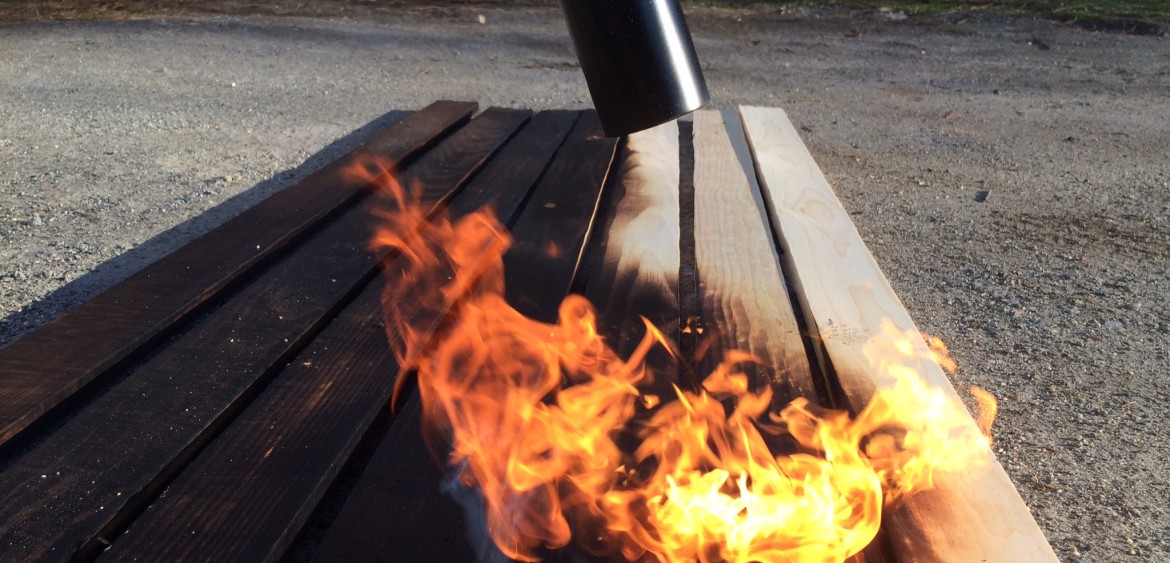
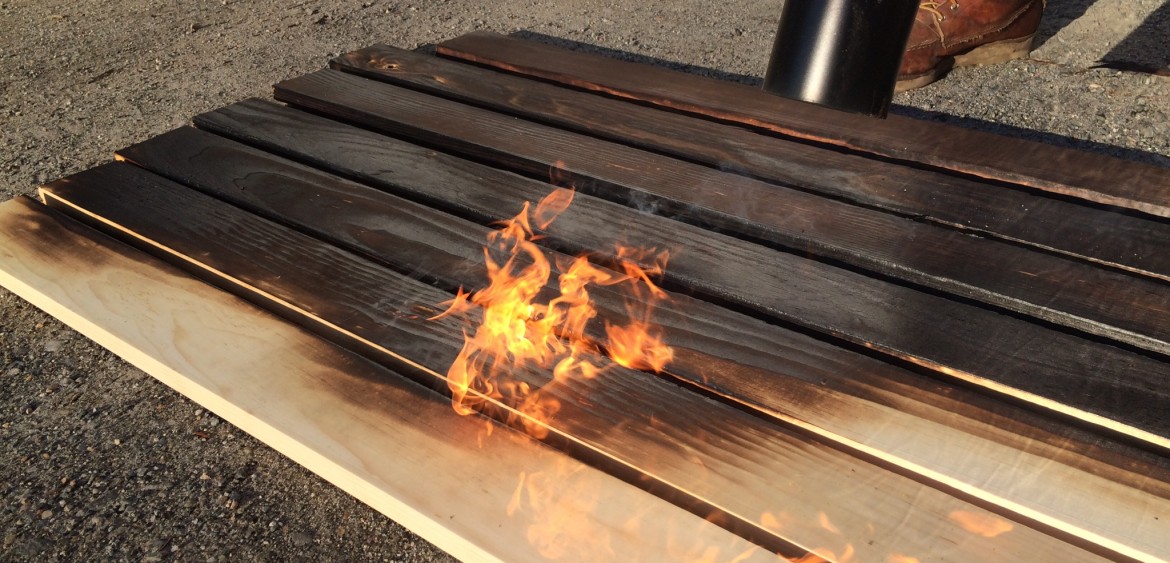
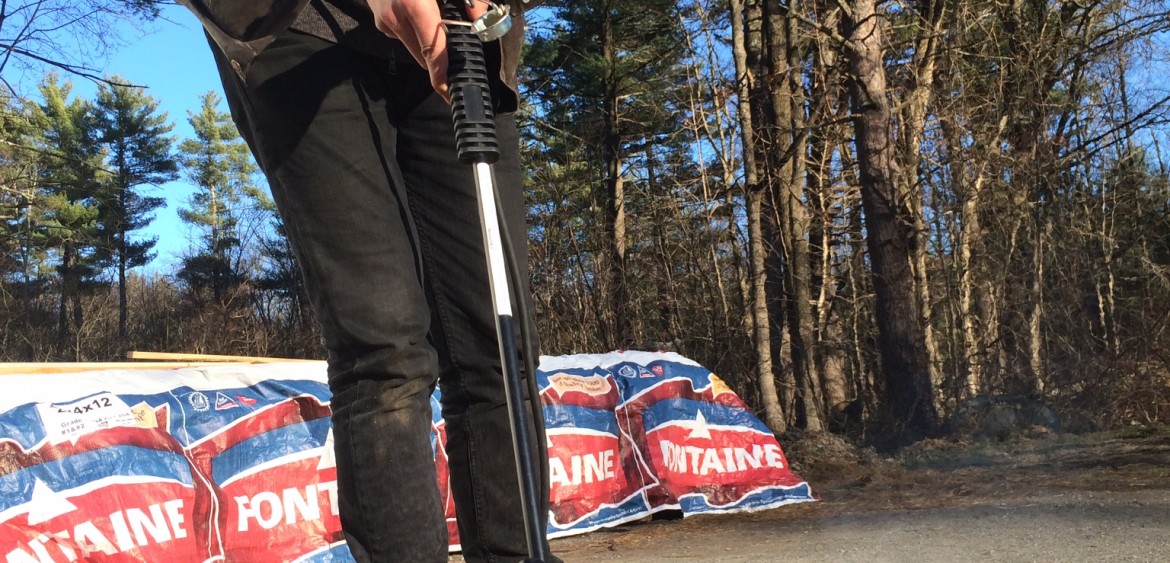
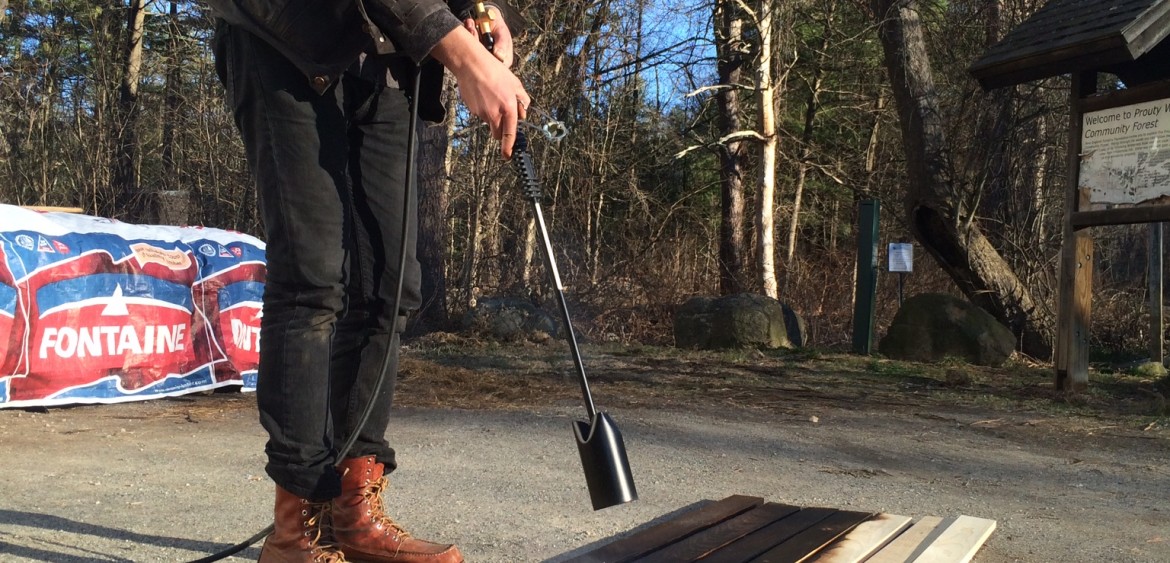
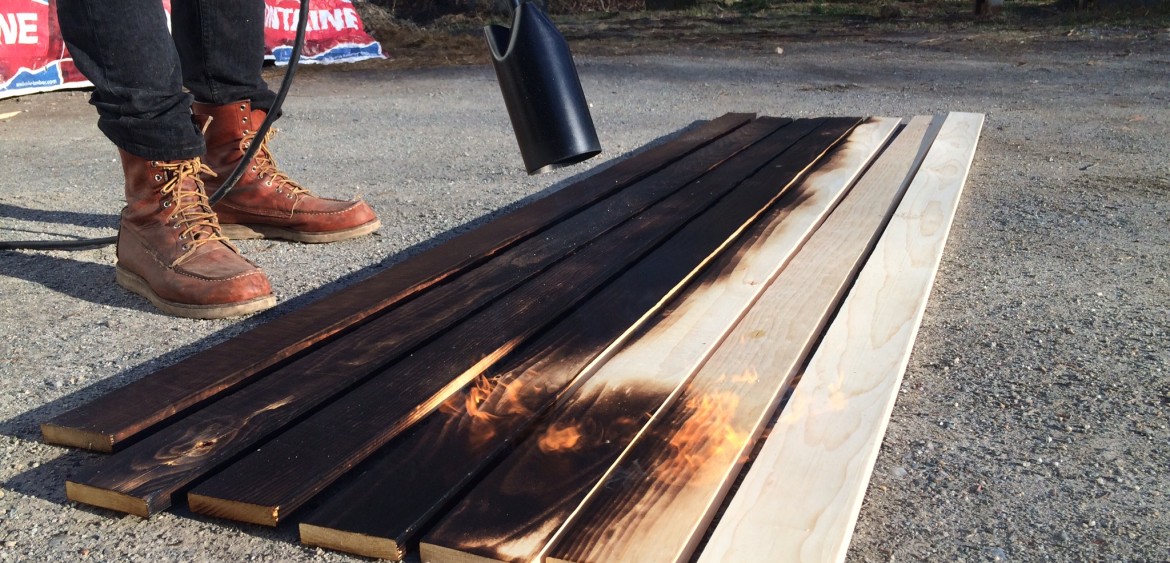
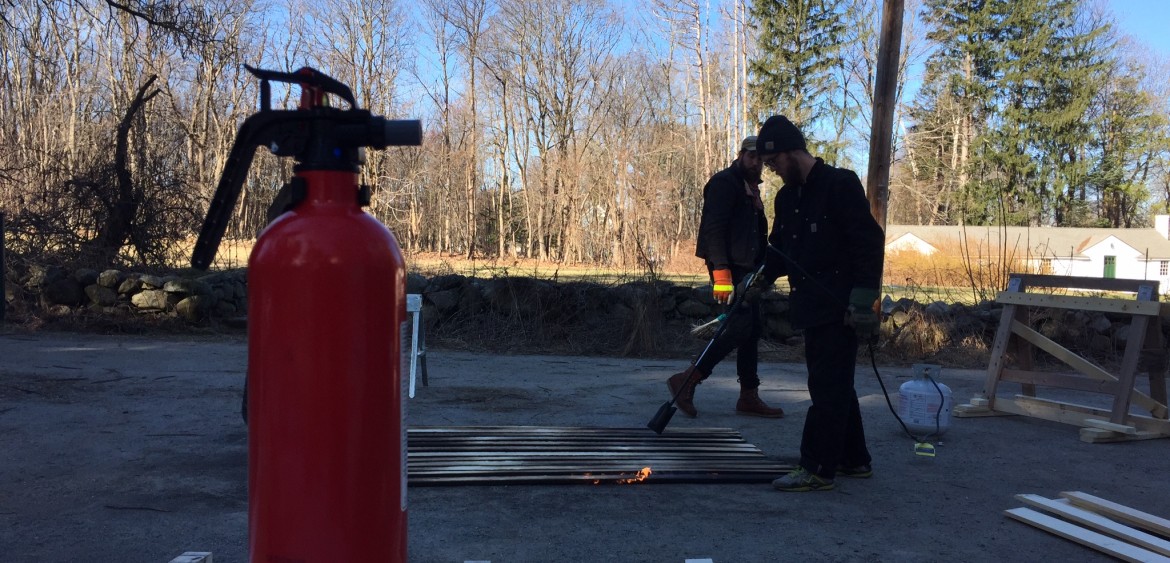
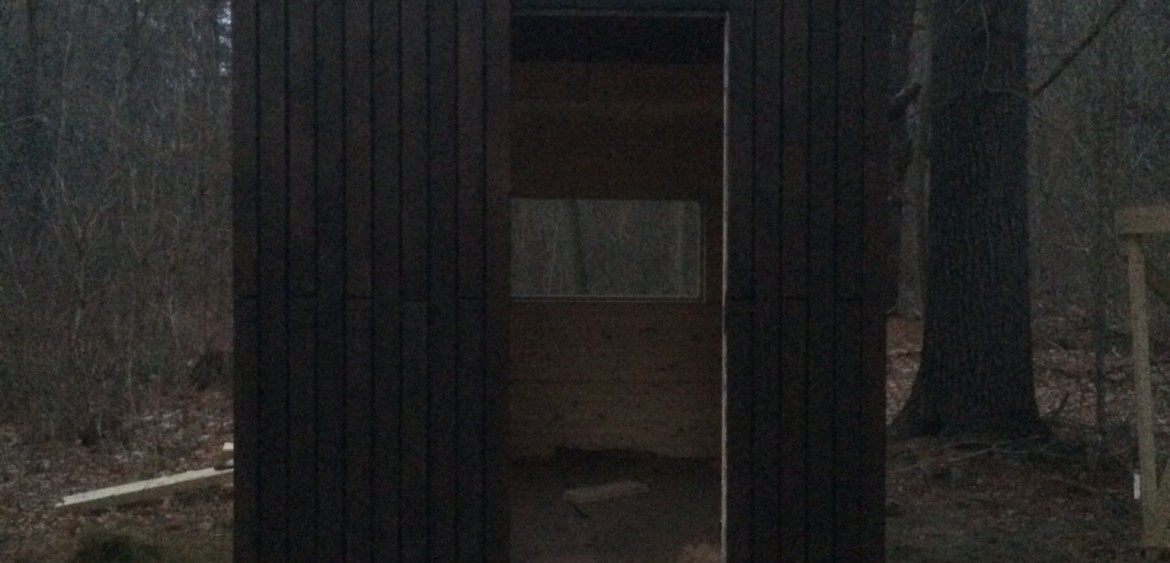
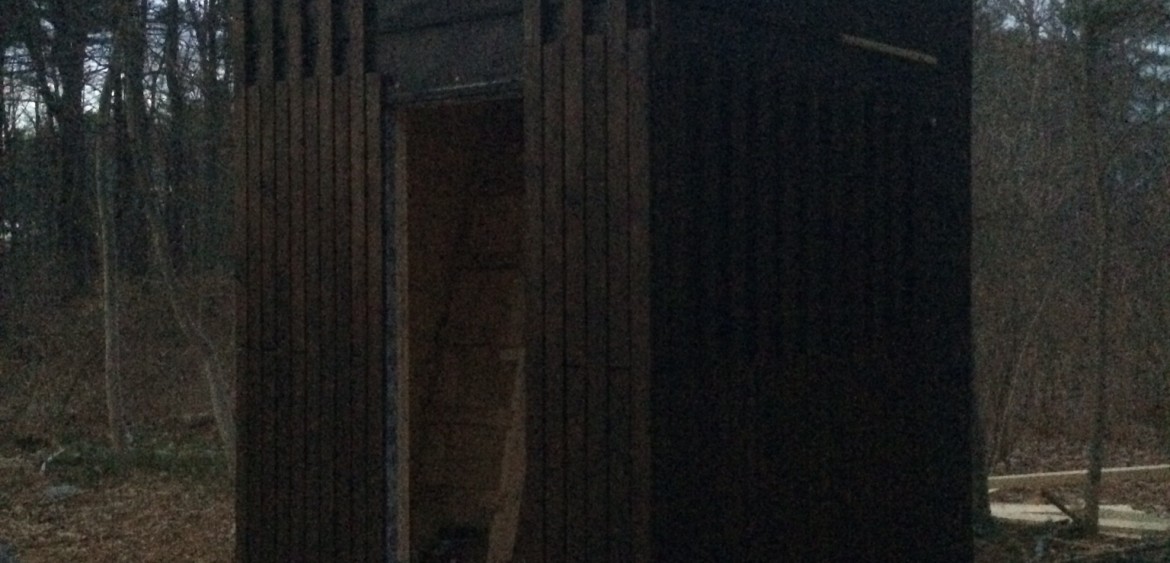
Sorry, the comment form is closed at this time.